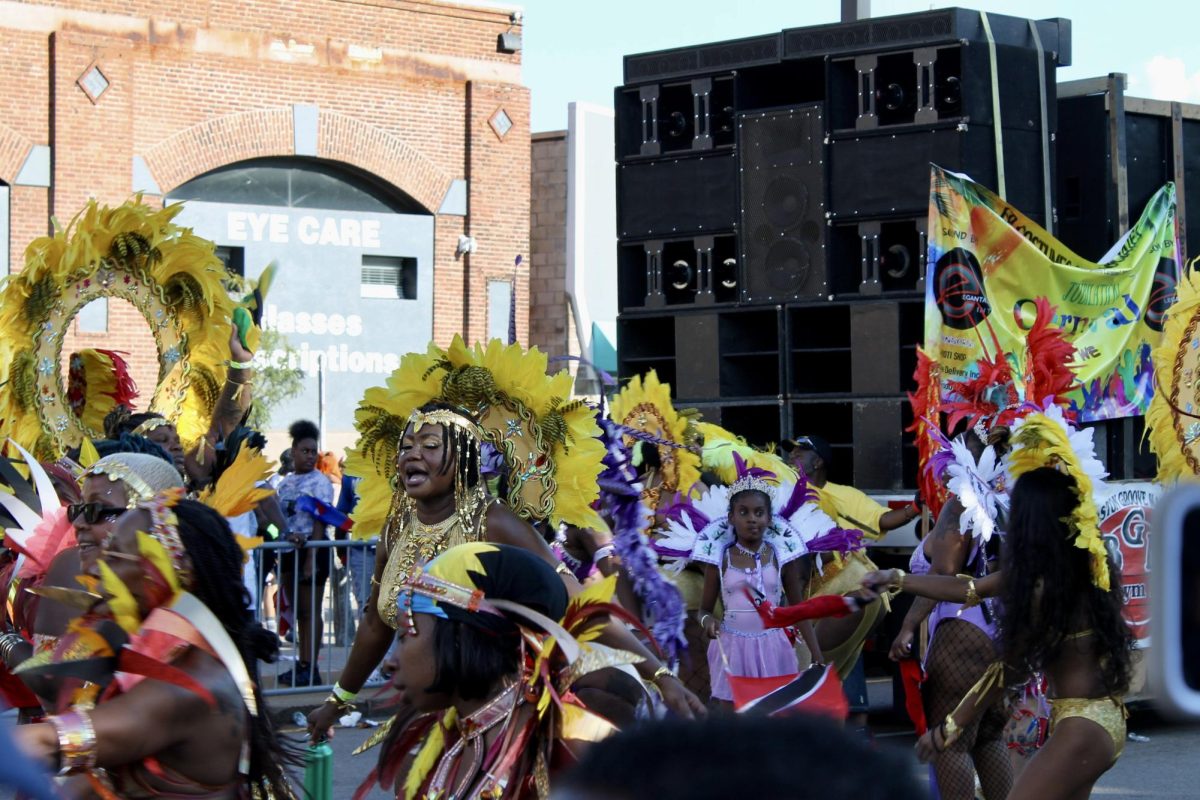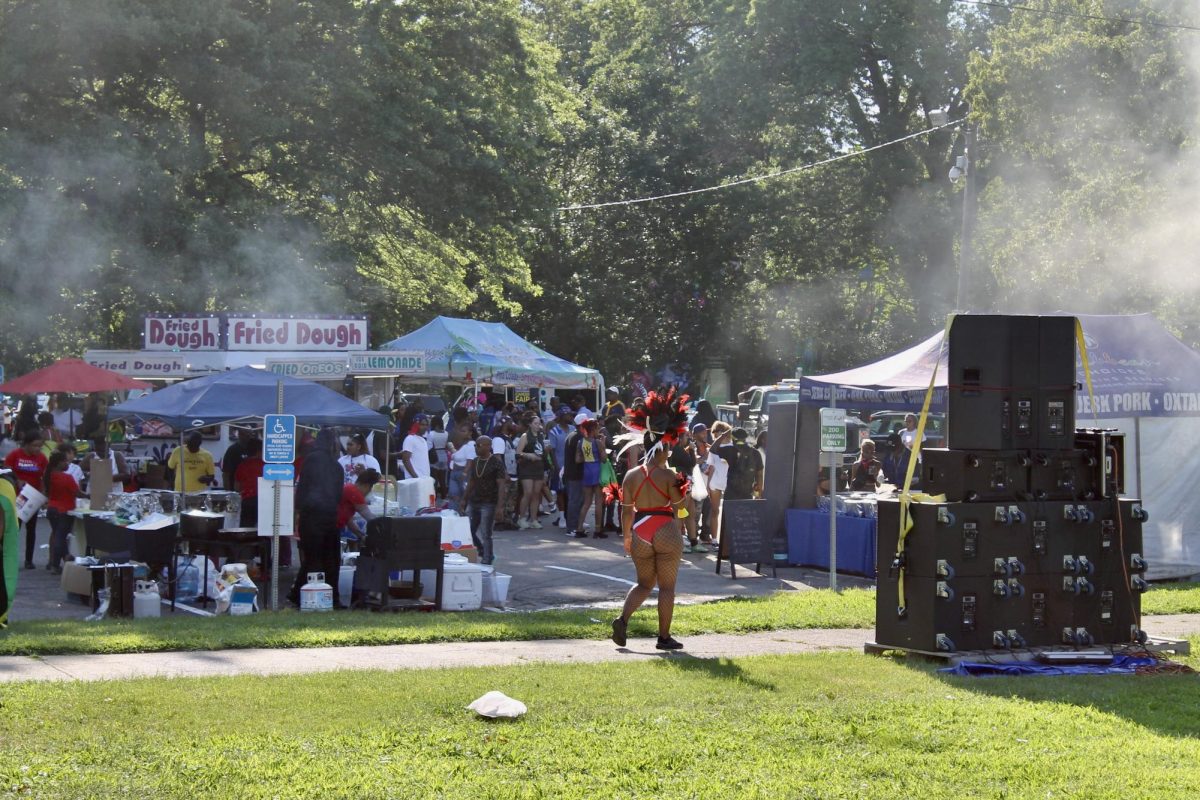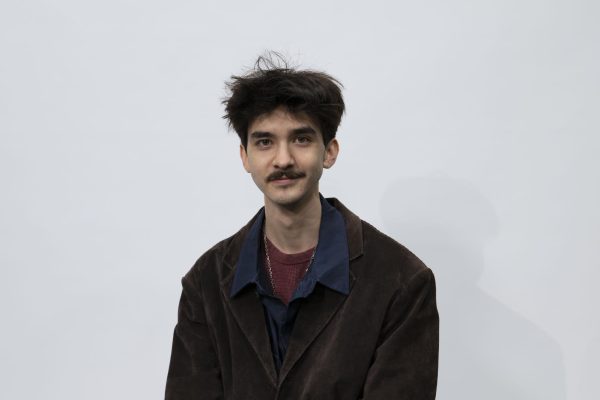Boston celebrated its 50th annual Caribbean Festival Aug. 26 with vendors from Massachusetts and beyond, live music and all the flavor of the Caribbean.
That morning, an unrelated shooting nearby scattered festival goers and injured eight, with all expected to recover. It was unclear whether the afternoon half of the parade would still turn out, but a passionate second wind made sure the celebration founded in resistance followed through.
“We have one of the largest celebrations, one of the longest-running celebrations, and to associate any individual event with acts that might have happened that were nearby or unaffiliated with it I think can reinforce some harmful perceptions in our community,” Boston Mayor Michelle Wu said at the event’s ribbon cutting ceremony.
The festivities began at 6:30 a.m. for J’ouvert (French for “day opens”), which is the first leg of the party. Trucks with walls of speakers thumped up the parade route from Talbot Avenue, up Blue Hill Avenue and toward Franklin Park while masquerade dancers shook their colorful tail feathers. Many of the intricate Mas costumes were long-term personal projects, getting their riotous unveiling at Carnival.
Original iterations of the festival involved “Cannes Brulees,” or “sugarcane burning” in French. Enslaved Africans in Trinidad and Tobago set fire to sugar cane intended for sale and played percussive music tied to their African roots in defiance of their imperial rule. Later, the festival was known as Canboulay, and eventually Carnival. In 1881, the British colonial government tried to ban the celebration by outlawing sticks and drums (deemed too unsafe), leading protesters to find and create new instruments, like the steel drum from Trinidad.
Dozens of countries take part in their version of the summer freedom celebration, from Jamaica to Puerto Rico. Mas dancers dress in elaborate costumes portraying royal figures, plantation owners, devils and many more. The characters critique various members of society and pay homage to folk tales and older versions of the celebration, several of these represented in Dorchester’s procession. “This year, our motto is love, not hate,” Shirley Shillingford, executive board president of the Caribbean American Carnival Association of Boston, or CACAB, told the Boston Globe. “We are promoting peace in the universe.”










![A demonstrator hoists a sign above their head that reads, "We [heart] our international students." Among the posters were some listing international scientists, while other protesters held American flags.](https://huntnewsnu.com/wp-content/uploads/2025/06/image12-1200x800.jpg)







